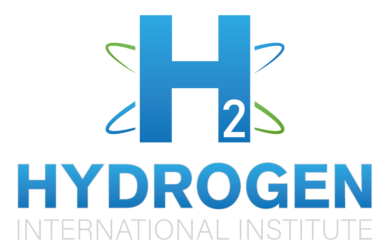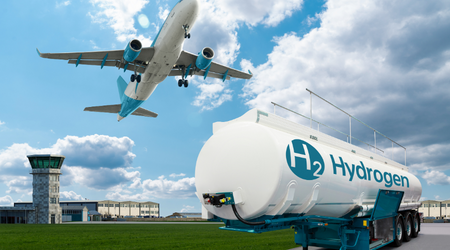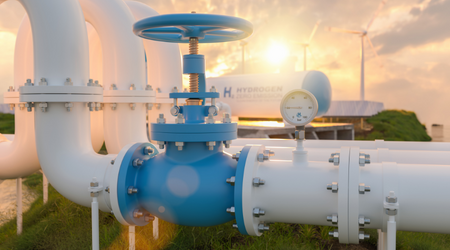Hydrogen Basics
Description
Dive into the exciting world of hydrogen technology with our ‘Hydrogen Fundamentals’ E-Learning course. Start your journey with the history of hydrogen and explore its unique properties. Through interactive content, learn about the important reaction limits of hydrogen, gaining confidence in its handling. The E-Learning course demonstrates the versatility of hydrogen through practical examples of private and commercial applications. Finally, the course guides you through the complex basics of electrolysis. This E-Learning allows you to gain substantial knowledge of hydrogen technologies, enabling you to actively contribute to shaping a sustainable future with the knowledge you have acquired.
Benefit
- Participants gain comprehensive knowledge about the properties and essential features of hydrogen.
- The E-Learning provides detailed knowledge about the ignition capability and reaction limits of hydrogen, which are crucial for safe handling.
- Participants develop an understanding of the diverse application possibilities of hydrogen, both in commercial settings and in private contexts.
- Interactive simulations in the course allow participants to gain a practical understanding of the complex processes involved in alkaline and Proton Exchange Membrane (PEM) electrolysis.
- The E-Learning prepares participants to effectively apply their acquired knowledge of hydrogen technologies in their professions or academic studies, thereby contributing to the realization of a sustainable future.
Target Audience
Our online course is suitable for both newcomers and individuals seeking to deepen their specific expertise. The target audience includes:
- Employees who work with hydrogen systems, involved in handling, planning, construction, and operation of such installations.
- Project managers and product managers responsible for hydrogen-related projects.
- Technical consultants, trainers, and engineering firms newly engaging with hydrogen and seeking expertise in this field.
Learning objectives
- Understanding the essential properties and significant characteristics of hydrogen.
- Recognizing and comprehending the ignition and detonation limits of hydrogen.
- Exploring the private applications of hydrogen.
- Exploring the commercial potential of hydrogen in various industries such as the energy sector or steel production.
- Understanding the structure and operating principles of the most common electrolysis methods.
Learning Content
Hydrogen Origins and Properties
- Hydrogen in general
- Occurrence of hydrogen on Earth
- Chemical formula of water and hydrogen
- Hydrogen in the periodic table
- Characteristics of hydrogen
- Historical facts (Cavendish & de Lavoisier)
- Properties
- Physical properties
- Simulation of the gas explosion experiment
Reaction Limits
- Ignition limits
- Reactable gas mixture
- Composition of air
- Flammability of gases using the example of a propane burner
- Ignition limits (lower and upper ignition limit) of propane gas
- Volumetric composition of an ignitable gas mixture
- Simulation of the volumetric gas composition using the example of a propane burner
- Detonation limits
- Comparison of reactivity between hydrogen and propane gas in volume
- Detonation limits (lower and upper detonation limit) of hydrogen
- Types of explosions (detonation and deflagration)
- Type of explosion for hydrogen
- Explosiveness of hydrogen in volume
- Detonation velocity of hydrogen
- Comparison of ignition limits of hydrogen
Private Applications of Hydrogen
- Private applications
- Historical applications
- Historical hazards of hydrogen use
- Ignition limits of hydrogen
- Comparison of typical vehicle propulsion systems with fuel cell (hydrogen) vehicles
- Facts about propulsion systems
- Setup of an autonomous hydrogen system for residential use
- Components of an autonomous hydrogen system for residential use
- Framework conditions for an ecological hydrogen system for residential use
- Generation, storage, and utilization of hydrogen through renewable energy sources using a simulation
Commercial Applications of Hydrogen
- General information
- Examples of hydrogen applications (in chemistry, steel production, as an energy carrier, and in the energy industry)
- Explanations of the applications
- Energy industry
- Utilization of wind power plants
- Characteristics of renewable energy
- Visualization of fluctuating power
- Principle of usable power ranges
- Basic characteristics of generation methods (wind power and solar)
- Statistical power demand of an average household
- Ratio of power demand and generated power
- Randomized simulation of household power demand
- Utilization of hydrogen as an energy carrier
- Conversion and storage of hydrogen in relation to generated power
- Randomized simulation of conversion and storage based on household power demand as a representative for all end consumers
- Chemical applications
- Examples of chemical compounds
- Composition of compounds containing the element hydrogen
- Reactivity of hydrogen based on its properties and characteristics
- Composition of untreated iron ore/iron oxide
- Reduction of ore by hydrogen or carbon
- Differences between oxidation and reduction
- Reaction in the blast furnace
- Chemical process of smelting iron oxide to steel using hydrogen
- Energy carriers & content
- Comparison of typical energy carriers (gasoline, diesel, battery, and hydrogen)
- Explanation of the unit kWh/m³ (kilowatt-hour per cubic meter)
- Forms of energy storage
- Mathematical derivation of potential energy through a simulated experimental setup
- Units of energy
- Comparison of typical energy carriers (gasoline, diesel, battery, and hydrogen) in kWh/m³
- Volumetric comparison using a comprehensible example
- Volumetric demand in relation to its density
- Compression potential of elements in the periodic table
- Explanation of the unit kWh/kg (kilowatt-hour per kilogram)
- Comparison of typical energy carriers (gasoline, diesel, battery, and hydrogen) in kWh/kg
Fundamentals of Electrolysis
- Electrolysis in general
- Purpose of electrolysis
- Hydrogen occurrence
- Atomic structure of water
- Experimental simulation of electrolysis
- Polarization of electrolysis
- Alkaline electrolysis
- Consequences of mixing resulting gases based on an experimental simulation
- Experimental setup of alkaline electrolysis
- Conductivity of water
- Consequences of incorrect electrolytes based on an experimental simulation
- Optimal generation conditions
- Chemical process of alkaline electrolysis
- Proton Exchange Membrane (PEM) electrolysis
- Historical background
- Structure of Proton Exchange Membrane (PEM) electrolysis
- Structure of a PEM stack
- Component descriptions using 3D models
- Chemical process of Proton Exchange Membrane (PEM) electrolysis





